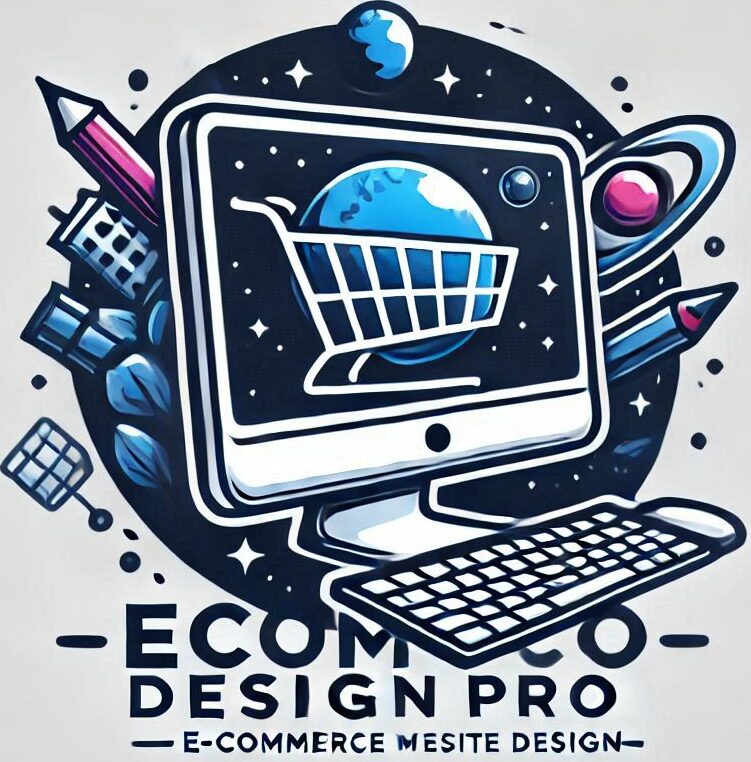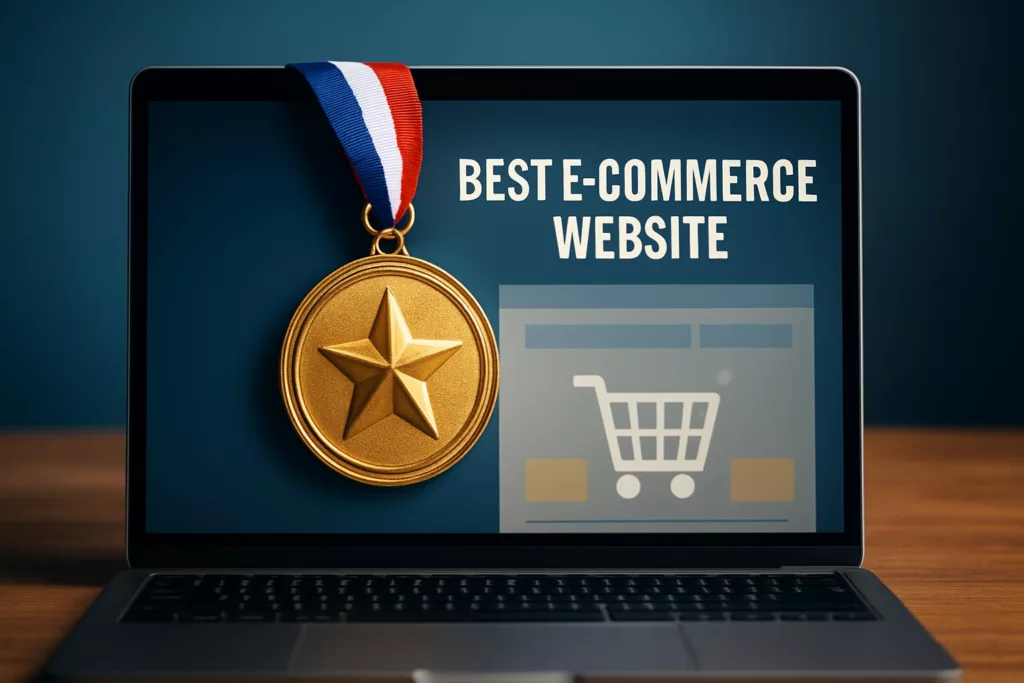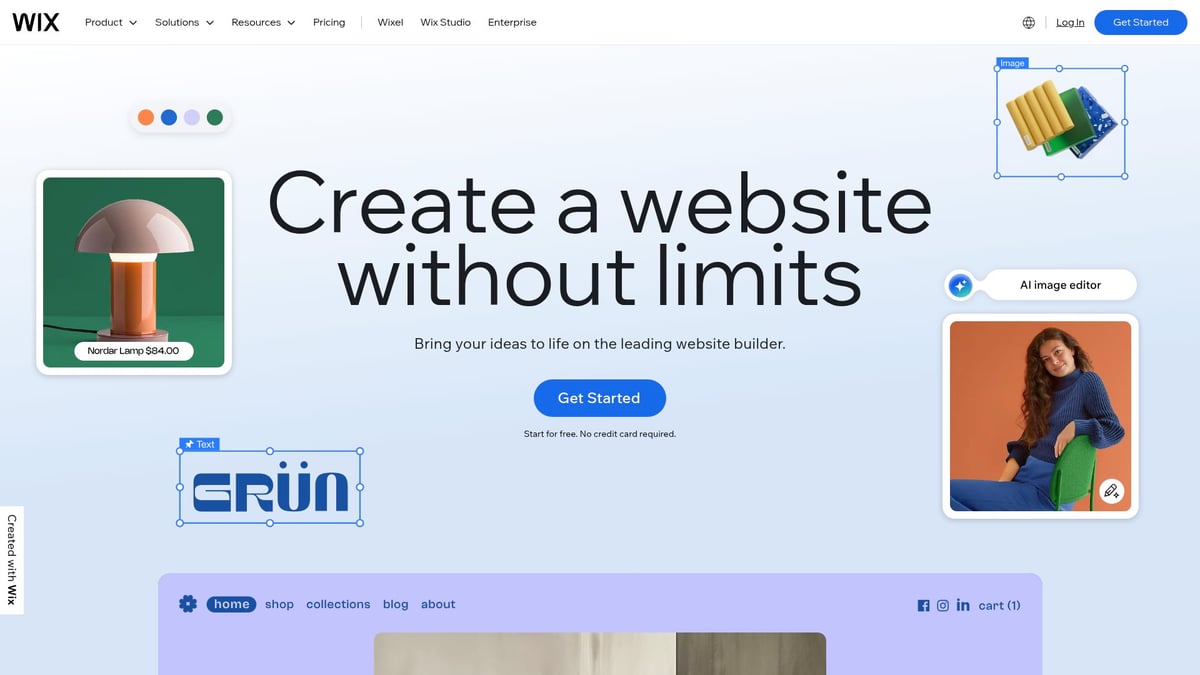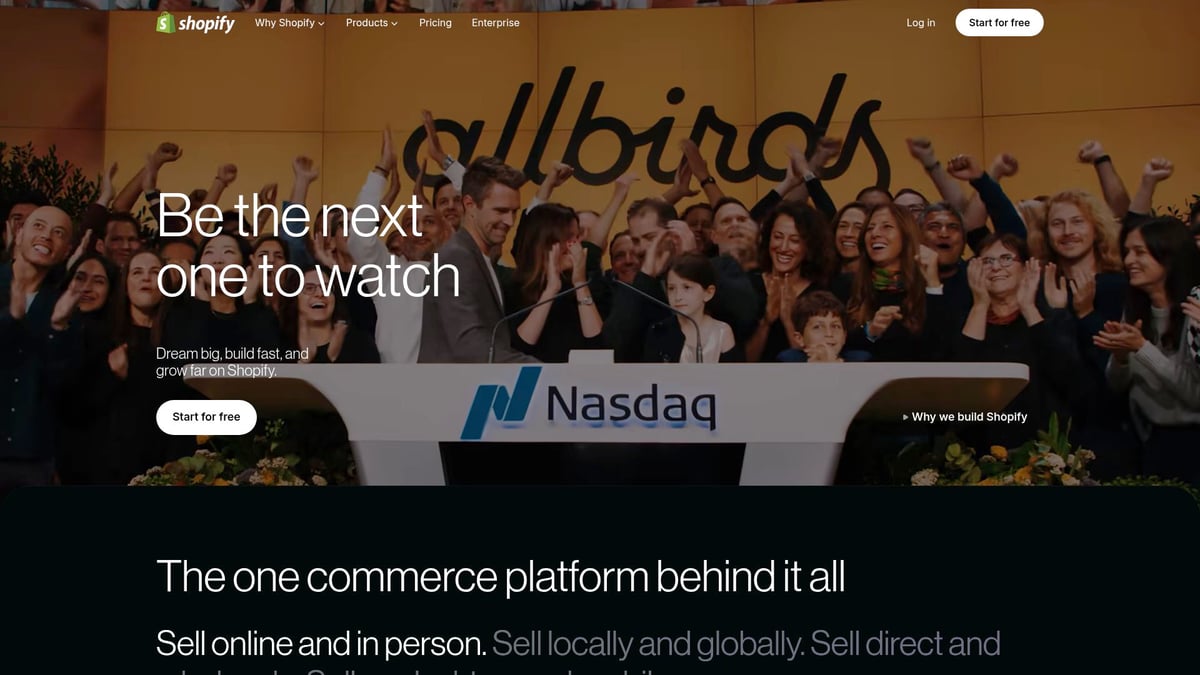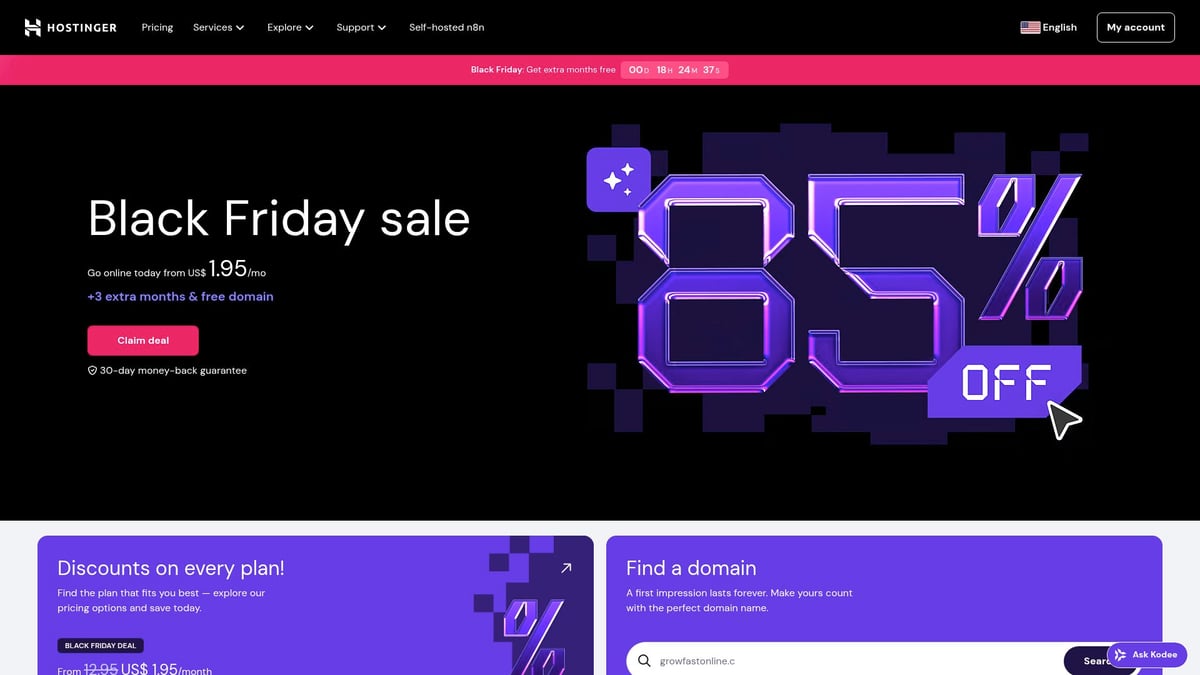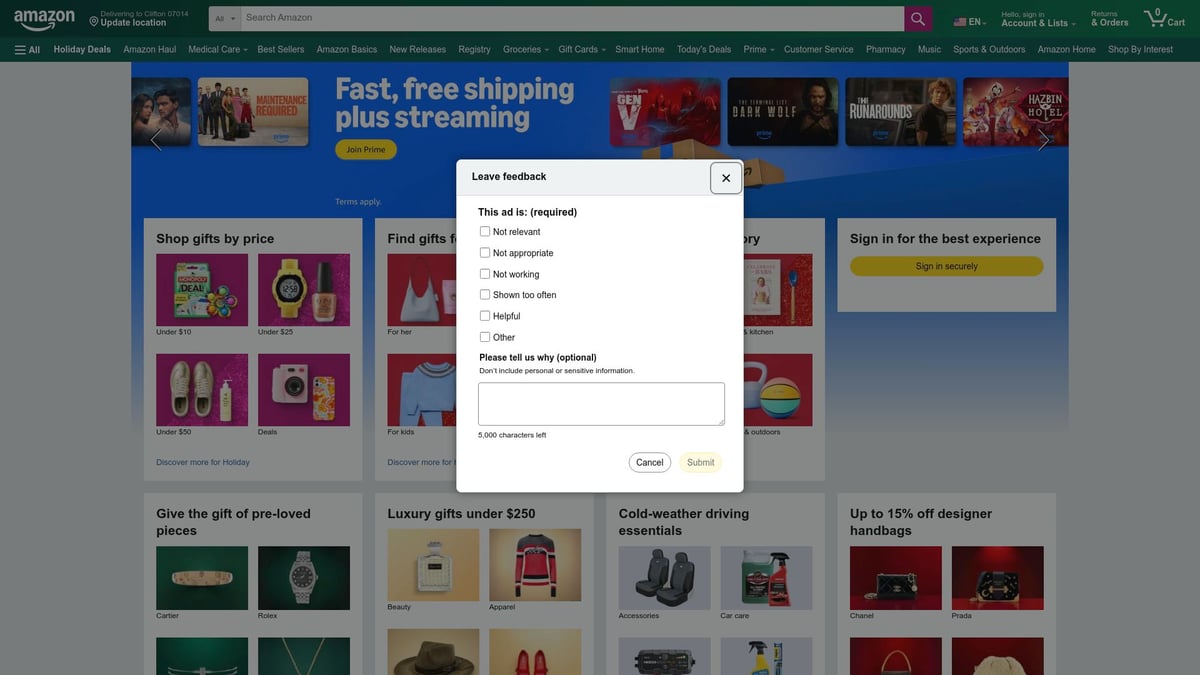The e-commerce world is changing faster than ever. To remain competitive, you need the best e commerce website for your online business in 2025.
Choosing the right platform can make or break your success. In this article, we reveal the top 7 best e-commerce website picks for 2025, each selected through careful research and comparison.
You will discover each platform’s standout features, pricing, pros and cons, and ideal use cases. Get ready to find the perfect match for your goals and take action with expert-backed recommendations.
Why Choosing the Right E-Commerce Platform Matters in 2025
Selecting the best e commerce website platform is more critical than ever as e-commerce continues to redefine global retail. In 2024, U.S. e-commerce revenue alone soared past $1 trillion, reflecting a surge in online shopping and digital transactions. This explosive growth sets the stage for even fiercer competition in 2025, making your platform choice a pivotal business decision.
User Experience and Design: The Conversion Engine
The best e commerce website platforms deliver seamless user experiences, fast loading times, and visually appealing designs. These factors can dramatically impact conversion rates and customer retention. Studies show that even a one-second delay in site speed can reduce conversions by 7 percent, emphasizing the importance of choosing a platform that prioritizes performance and usability.
AI, Automation, and Omnichannel Selling
Modern consumers expect personalized shopping journeys and real-time support. Leading platforms now integrate AI-powered recommendations, automated marketing, and omnichannel selling tools. This allows businesses to reach customers across web, mobile, and social channels efficiently. Without these features, brands risk falling behind more agile competitors.
Security, Scalability, and Compliance: Foundations for Growth
Security threats and evolving regulations make robust security and compliance essential. The best e commerce website options ensure PCI DSS compliance, SSL encryption, and ongoing updates to protect customer data. Scalability is equally important; a platform must support growth in product range, traffic, and order volume without compromising performance.
Mobile Commerce Takes the Lead
With over 60 percent of all e-commerce sales now coming from smartphones, mobile optimization is non-negotiable. Platforms that offer responsive design and mobile-first features empower businesses to capture this growing audience. A lack of mobile readiness can directly harm search rankings and sales.
SEO, Marketing, and Integrations: Driving Visibility and Efficiency
Platform selection impacts your ability to leverage SEO, run effective marketing campaigns, and integrate with third-party tools. The best e commerce website providers offer built-in SEO tools, app marketplaces, and seamless connections to shipping, accounting, and analytics solutions. This ecosystem streamlines operations and maximizes visibility.
Real-World Success Stories and Common Pitfalls
Many brands have scaled rapidly by selecting the right platform for their goals. For example, companies that started with flexible builders like Wix or Shopify have achieved international expansion thanks to multilingual support and global payment options. In contrast, businesses using outdated or limited systems often face slow site speeds, integration headaches, and lost sales opportunities.
For a detailed comparison of top solutions and advice on making the right choice, visit the Best e-commerce website builders guide.
Key Challenges with Outdated Platforms
Relying on legacy or restricted e-commerce solutions can limit your ability to adapt to new trends. Common issues include poor mobile performance, lack of integrations, security vulnerabilities, and insufficient customer support. As competition intensifies in 2025, only those who invest in the best e commerce website technology will thrive.
Top 7 Best E-Commerce Website Picks for 2025
Choosing the best e commerce website for your business can make or break your success in 2025. With technology evolving and consumer expectations rising, the right platform offers a powerful foundation for growth. Our ranking is based on features, performance, scalability, pricing, and real user feedback. To further support your decision-making process, consider exploring this E-commerce platform comparison guide for a comprehensive side-by-side analysis.
Wix Ecommerce
Wix Ecommerce continues to be a top contender for the best e commerce website in 2025, especially for startups and creative brands. Its pricing ranges from $17 to $159 per month, with a free plan and a 10% discount using code “TAKE10.” The platform stands out for its intuitive drag-and-drop builder and a library of more than 800 templates.
| Feature | Details |
|---|---|
| Pricing | $17–$159/mo, free plan, 10% off with “TAKE10” |
| Templates | 800+ |
| Payment Gateways | 80+ |
| Overall Rating | 4.8/5 (WebsiteBuilderExpert) |
Wix offers all-in-one solutions for brand building, including personalized SEO support and robust marketing tools. Its international selling capabilities, with multilingual and multi-currency options, make it the best e commerce website for businesses aiming to expand globally.
Pros:
- Intuitive, flexible design tools
- Excellent support and app marketplace
- Strong for multichannel selling
Cons:
- Limited advanced e-commerce features for very large stores
Businesses using Wix have successfully reached international markets thanks to its easy-to-use features and support for multiple currencies. With over 80 payment gateways and high user ratings, Wix is ideal for small businesses that want a beautiful online store without complexity.
Choosing Wix means investing in a platform that balances ease of use with powerful features, making it a leading choice for the best e commerce website in 2025.
Shopify
Shopify remains a global leader and is often cited as the best e commerce website for businesses seeking scalability. Pricing starts at $29 and goes up to $299 per month, with a $1 trial for the first month. Shopify’s core features include over 100 payment options, multichannel selling, a customizable checkout, and a vast app ecosystem.
| Feature | Details |
|---|---|
| Pricing | $29–$299/mo, $1 first month trial |
| Payment Options | 100+ |
| Monthly Visits | 3.2B+ (Semrush) |
| Overall Rating | 4.8/5 |
Shopify’s unique selling points are its advanced sales features and robust analytics, which help brands scale from startups to enterprises. It excels in supporting unlimited products and integrates seamlessly with hundreds of apps and third-party tools.
Pros:
- Unbeatable sales and analytics features
- Vast integration options
- Excellent scalability
Cons:
- Transaction fees apply
- Learning curve for advanced tools
Shopify is the best e commerce website for brands aiming to grow quickly and handle high sales volumes. Many businesses have transitioned from small stores to global enterprises using Shopify’s advanced features and support.
If you prioritize growth, analytics, and a comprehensive app marketplace, Shopify offers everything you need to launch and expand your online business in 2025.
Squarespace
Squarespace is widely recognized as the best e commerce website for creatives and service providers who want stunning design and simplicity. With pricing from $16 to $99 per month and a 10% discount using code “WBE10,” Squarespace delivers aesthetic templates and built-in marketing tools.
| Feature | Details |
|---|---|
| Pricing | $16–$99/mo, 10% off with “WBE10” |
| Payment Gateways | 6 |
| Unlimited Storage | Yes |
| Overall Rating | 4.7/5 |
The platform shines with visually impactful templates and excellent scheduling tools, making it ideal for service-based businesses. You can sell unlimited products and services while benefiting from integrated analytics.
Pros:
- Beautiful, professional templates
- Strong scheduling and appointment features
- Easy to use with unlimited storage
Cons:
- Fewer payment gateways
- Limited scalability for very large operations
Businesses offering appointments or creative services often find Squarespace to be the best e commerce website due to its blend of design and functionality. The platform’s ease of use empowers users to launch professional stores quickly.
If visual appeal and simplicity are your top priorities, Squarespace is a smart, reliable choice for 2025.
Hostinger Website Builder
Hostinger Website Builder is quickly emerging as the best e commerce website for side hustlers and budget-conscious entrepreneurs. Its pricing is highly competitive, starting at $2.99 and going up to $109.99 per month, with three months free on select plans.
| Feature | Details |
|---|---|
| Pricing | $2.99–$109.99/mo, 3 months free |
| AI Tools | Yes |
| Payment Gateways | 100+ |
| Overall Rating | 4.2/5 |
Hostinger’s AI-powered builder and drag-and-drop interface make it easy for beginners to launch an online store. You get unlimited products, a free custom domain, and impressive automation tools at a fraction of the cost of larger platforms.
Pros:
- Affordable for any budget
- Fast setup and easy to use
- AI-driven design and marketing
Cons:
- Limited advanced features for growing stores
- Some scalability constraints
Entrepreneurs with limited time or funds find Hostinger to be the best e commerce website for launching side projects quickly. The platform’s AI tools simplify everything from design to marketing, enabling sellers to focus on growth.
For those starting small and aiming for efficiency, Hostinger offers a compelling, cost-effective entry point for e-commerce in 2025.
GoDaddy Online Store
GoDaddy Online Store positions itself as the best e commerce website for businesses seeking the fastest possible setup. Pricing ranges from $10.99 to $23.99 per month, with a 7-day free trial to get started.
| Feature | Details |
|---|---|
| Pricing | $10.99–$23.99/mo, 7-day free trial |
| Payment Gateways | 3 |
| Social Integration | Yes |
| Overall Rating | 3.8/5 |
GoDaddy’s beginner-friendly editor and local promotional tools are perfect for small businesses and retailers focused on social media-driven sales. Its simple interface and affordable pricing make it the best e commerce website for new online sellers.
Pros:
- Quick, hassle-free launch
- Simple to use
- Strong social media integration
Cons:
- Limited customization options
- Fewer payment gateways
Local shops and small businesses can create an online presence rapidly, leveraging GoDaddy’s integration with Facebook and Instagram. The platform’s tools are tailored for those who want to reach customers where they spend the most time.
If speed and simplicity are your top priorities, GoDaddy offers a straightforward solution for getting your business online in 2025.
Amazon
Amazon remains the best e commerce website for unparalleled reach and high-volume sales. With a professional seller account at $39.99 per month and additional referral fees, Amazon offers access to the world’s largest online marketplace.
| Feature | Details |
|---|---|
| Pricing | $39.99/mo (Professional Seller) |
| Monthly Visits | 3.25B+ |
| Fulfillment | FBA available |
| Net Sales Q2 2024 | $148B, 10% YoY growth |
Amazon’s fulfillment network (FBA), advanced analytics, and trusted infrastructure enable sellers to scale rapidly. The platform is ideal for brands seeking maximum exposure and the ability to serve a global customer base.
Pros:
- Massive, ready-to-buy audience
- Fulfillment and logistics handled
- Trusted payment processing
Cons:
- Highly competitive environment
- Fees and limited branding control
Small brands and startups have achieved rapid growth by leveraging Amazon’s reach and fulfillment services. For those who want immediate access to millions of shoppers, Amazon stands as the best e commerce website for scaling fast in 2025.
Etsy
Etsy is recognized as the best e commerce website for artisans, crafters, and sellers of unique or vintage goods. With a low cost of entry ($0.20 per listing and a 6.5% transaction fee), Etsy provides a built-in audience and easy setup.
| Feature | Details |
|---|---|
| Listing Fee | $0.20 per item |
| Transaction Fee | 6.5% |
| Monthly Visits | 383.9M (Semrush, 2024) |
| Overall Rating | High for niche sellers |
Etsy’s niche audience and strong community support make it the best e commerce website for creative entrepreneurs. The platform’s seller tools and targeted traffic help small brands reach global customers.
Pros:
- Targeted, engaged community
- Simple listing process
- Supportive environment for small brands
Cons:
- High competition within categories
- Transaction fees can add up
- Limited customization options
Handmade jewelry makers, vintage sellers, and artists rely on Etsy to showcase their work and connect with buyers worldwide. If you are selling creative or unique products, Etsy is the best e commerce website to reach passionate shoppers in 2025.
Key Trends Shaping E-Commerce Website Success in 2025
The best e commerce website for 2025 is defined by its ability to adapt to rapidly evolving trends. To remain competitive, online businesses must anticipate and leverage the key shifts shaping the digital marketplace. Let us examine the most influential trends driving platform success in the coming year.
AI and Personalization Drive the Future
Artificial intelligence is now at the core of the best e commerce website strategies. Platforms like Hostinger and Shopify are integrating AI to deliver smarter product recommendations, automate customer service, and optimize inventory management. With AI-powered chatbots and analytics, brands can tailor experiences to individual shoppers, boosting engagement and conversion rates.
Personalization goes beyond product suggestions. Dynamic content, targeted marketing, and predictive search make online stores feel intuitive and responsive. According to a recent e-commerce platform market analysis, AI-driven solutions are a decisive factor in platform selection for 2025.
Omnichannel Commerce and Mobile-First Experiences
Today’s consumers expect seamless shopping across web, mobile, and social platforms. The best e commerce website is one that supports omnichannel selling, allowing businesses to unify their brand presence and customer data. Integrating sales on Instagram, Facebook, and TikTok is now essential to reach buyers where they spend time.
Mobile commerce continues to surge, accounting for over 60% of e-commerce sales. Platforms that prioritize mobile-first design, fast load times, and intuitive navigation will see higher conversion rates. Responsive templates and mobile payment options should be standard features for any leading e-commerce solution.
Security, Compliance, and Sustainability
Trust is non-negotiable in e-commerce. The best e commerce website must comply with global standards such as GDPR and PCI DSS to protect customer data and payment information. Shoppers are increasingly aware of privacy and expect transparent data practices.
Sustainability is also rising in importance. Many online stores now highlight eco-friendly packaging, carbon-neutral shipping, and responsible sourcing. Brands that embrace green practices can differentiate themselves, appeal to conscious consumers, and meet regulatory requirements.
Social Commerce and Website Speed
Social commerce is changing how businesses connect with audiences. Platforms that integrate with popular social networks enable brands to tag products, run targeted ads, and convert followers into customers directly. GoDaddy’s local promotion tools and Squarespace’s new AI-powered features are designed for this social-first approach.
Speed is another critical factor. Google reports that 53% of mobile users abandon sites that take more than three seconds to load. Fast, optimized websites not only improve user experience but also boost SEO rankings. For a detailed breakdown of performance essentials, review e-commerce website features for high performance.
To succeed in 2025, every best e commerce website must combine personalization, omnichannel reach, robust security, eco-conscious practices, social integration, and lightning-fast performance. These trends will define the leaders of the digital marketplace.
How to Choose the Best E-Commerce Website for Your Business
Selecting the best e commerce website for your business is a strategic decision that impacts your long-term growth, customer experience, and competitive edge. With so many platforms available, taking a structured approach helps you avoid costly mistakes and ensures your store is built for success.
Assess Your Business Needs
Begin by evaluating your business size, target market, and growth ambitions. Are you a startup, a growing retailer, or an established brand? Consider your current sales volume and future projections. This assessment shapes your requirements for product limits, order management, and advanced features.
Think about your technical expertise and available resources. Do you need an intuitive drag and drop builder or are you comfortable with more complex customization? Identifying these factors helps narrow your search for the best e commerce website.
Compare Costs and Features
Analyze the total cost of ownership for each platform. Look beyond monthly subscription fees to include transaction fees, payment processing charges, and costs for essential add-ons. Some platforms offer bundled marketing or SEO tools, while others require extra investment.
List the core features you need—such as multichannel selling, analytics, or appointment scheduling—and see which platforms deliver the most value. For a deeper dive into this process, refer to the Selecting the right e-commerce platform guide.
Example Cost Comparison Table
| Platform | Monthly Fee | Transaction Fee | Notable Add-Ons |
|---|---|---|---|
| Wix | $17+ | 0% | Multilingual support |
| Shopify | $29+ | 2.9% + 30¢ | Advanced analytics |
| Squarespace | $16+ | 3% (basic plan) | Scheduling, marketing |
Evaluate Integrations, Support, and Scalability
Consider how well the platform connects with your preferred marketing, shipping, and accounting tools. Check for compatibility with third-party apps, as seamless integrations streamline daily operations and future growth.
Customer support and community resources are vital, especially when issues arise or you need guidance. Look for 24/7 support, tutorials, and active user forums. Scalability is another essential factor; 80% of e-commerce businesses cite platform scalability as crucial for long-term success.
Platforms like Shopify and Amazon are known for supporting rapid growth, while Wix and GoDaddy are popular for quick, easy launches. Always verify whether the best e commerce website can handle increased traffic, product expansion, and international sales as your business evolves.
Make the Final Choice
After thorough comparison, align your shortlist with your business goals. Small businesses often start with user-friendly options like Wix or GoDaddy, then migrate to scalable solutions such as Shopify or Amazon as sales increase.
Choosing the best e commerce website is not just about current needs, but also about where you want your business to be in the next few years. Take your time, test free trials, and rely on expert resources to make an informed decision.
